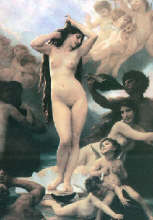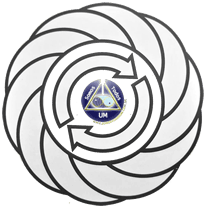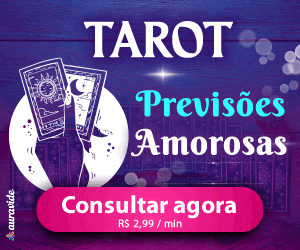Our own sexuality
 Publicado por Sirley Bittú
em STUM WORLD
Publicado por Sirley Bittú
em STUM WORLDCompartilhe
Translated by Wali - [email protected]
Final revision by Françoise Killick - [email protected]
Let’s do a quick exercise: try to remember, for a few seconds, all the ways you have witnessed how affection, love, desire and excitement can be expressed. Let the scenes come naturally to your mind, think of your family, your parents, yourself. How did it use to happen? Did your parents kiss each other in front of you? Did they stroke each other? Did they walk hand in hand, side by side or one following the other? Did they talk about sex, love and affection with you? Did they forbid some films and impose special hours to watch TV? Were they ashamed at your questions or did they give natural answers? Were they present for you?
Now try to remember how you used to behave: were you shy, bold, curious? Were you afraid to ask questions? Would you accept any answer? Did you share your doubts with friends? And then, try to detect how this influences your present sexuality.
This is, of course, a time-consuming task and I obviously did not mention all the variable factors that would have to be considered. It is only the beginning of an exercise that could help you to understand how experiences influence our behavior, mainly in respect to the expression of our feelings.
The expression of our sexuality is based on the result of this difficult and complex equation: the sum of the information received (concepts and pre-conceived ideas, myths and truths) and the way we decode what we receive: our "eyeglasses".
Sexual choices go through a physical, emotional and social process. We are born with particular characteristics and are educated with behavioral models. We learn to dress ourselves, to have adequate or socially-accepted gestures, to choose what to eat, to support a certain team or a sport, to like or dislike TV. And the way all this is transmitted to us depends on the conscience our educators. Similarly, we learn "to deal" with our sexuality.
We get involved emotionally according to our searches, dissatisfactions, fantasies, beliefs, fears, certainties and our apprehension of the world. It is natural for all human beings to look forward for an affective and love involvement. Every human being is in demand of love, pleasure, affection, and wants to be part of the whole. The type of partner that we choose is related to these models that we receive during our development, to the people we know, and to the stories we live.
The forms that we use to get pleasure are related it our fantasies, wishes and to the possibilities to fulfill them. The human being is altogether reason, emotion and spirituality. Desire is free and we can desire many things, but the execution of these desires depend on our reason and spirituality. What I want to say is that desire is an expression of the human being inside ourselves, but the execution of this desire reflects our internal health, our capacity of adaptation or ability to live socially, and our understanding of the world.
Our personal development requires that learn to respect our values, to be creative and spontaneous in our desires, going beyond our limitations. However, it is also difficult to detect our desires. The desires we have as human beings are the expression of our individuality.
But, even nowadays, we still have many preconceived ideas. Homosexuality, for example, is attacked and disrespected. Freedom of choice and of being what one desires is far from being conquered. Much has still to be done for us to grow and improve the way we relate with persons who think, feel and perceive the world in a particular and different way.
Nowadays, virginity has become a "upside down" taboo amongst the young. Being a virgin is the modern crime, contrarily to what it used to be 40 or 50 years ago. Opposite positions that, nonetheless, confirm that the preconceived idea remains.
Virginity is not only a question of making love or not, but it is directly related with the notion of self-respect, responsibility and capacity to take care of oneself. The youngsters will be prepared when the sexual relation is no longer considered as an obligation or only another way of confrontation.
Today, it is common to hear things like... “all the friends of my age have already made love "... or, "when somebody asks me, I quickly say that I have already had my own experience"... or, "I am called "chicken" because I refused to have sexual intercourse"...
This is an important emotional learning: we have to assume our choices and face their consequences.
Socially speaking, the notion of respect and individuality is still very vague. In Brazil, sex is a mass consuming product and we are considered as being the country of the "mulatas" and bikinis. Children are constantly stimulated to pay attention to sexuality through clothes, accessories, TV, music and until some dances. They sometimes even lose their space of being children, simply because they are considered part of the young/adult world and not children any longer.
TV commercials constantly appeal to sexuality, women are associated to beers or to the pleasure of drinking. The media reflects human imagination, ideas, values, desires and fantasies. Women shown as sexual objects are still good selling gimmicks, but men have also become consumption products.
This is a time to review values, ideas and beliefs. The human being is constantly in evolution and transformation. Our opinions about what is good and bad, right and wrong change in accordance with the prism we choose to decode life.
Sexuality must be considered and accepted as something natural that is part of our development, discoveries, personal experiences and that is mainly expression of life. In order to live your own sexuality deeply, without blaming ourselves or suffering, it is necessary for us to develop our self-respect and confront our own fears. We can only achieve this goal if we accept who we are and acknowledge our possibilities and responsibilities.
| Consulte grátis | |||||
Leia Também
A sexualidade de cada um
Sobre o autor
 | |
Psicodramatista Didata Supervisora
Terapeuta em EMDR pelo EMDR Institute/EUA
Consultório (11) 5083-9533
Email: [email protected]
Visite o Site do Autor
Siga-nos:
NOSSO TRABALHO
Quem Somos
Nossa Missão
Colunistas
Cadastro Gratuito
Descadastramento
Depoimentos
Mapa do Site
Rss
Arquivo
Quem Somos
Nossa Missão
Colunistas
Cadastro Gratuito
Descadastramento
Depoimentos
Mapa do Site
Rss
Arquivo

© Copyright 2000-2025 SomosTodosUM - O SEU SITE DE AUTOCONHECIMENTO. Todos os direitos reservados.
Política de Privacidade - Site Parceiro do UOL Universa

